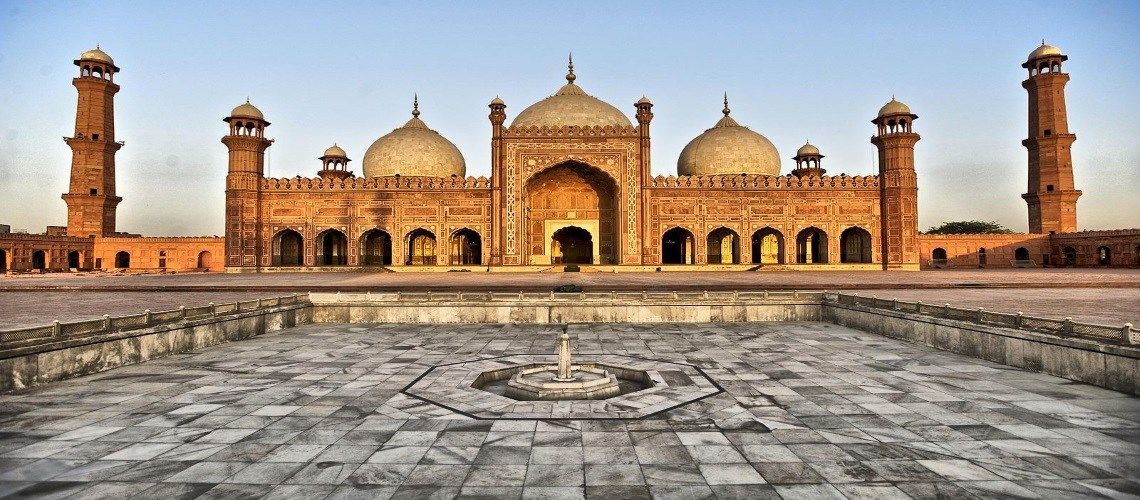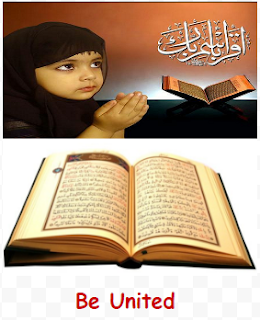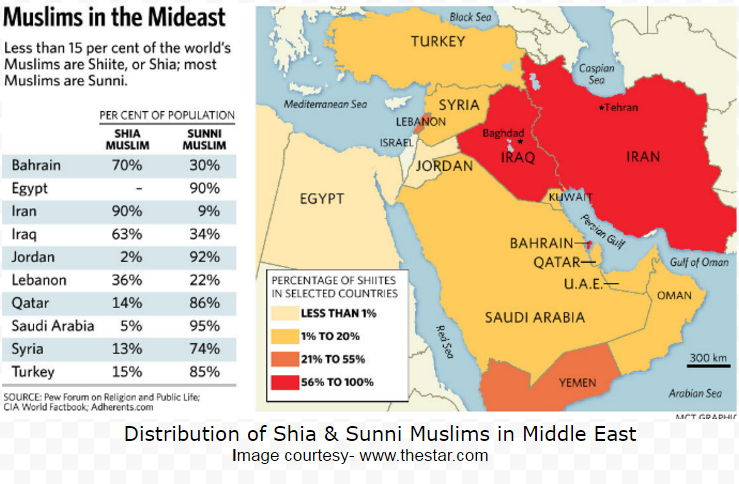Shia and Sunni Muslims; Origin and differences
Bharatwa Editor
. 4 min read

It is a great irony that Quran speaks about unity and rejects the division of religion in sections among Muslims however fact is that Muslim community has many divisions and sub-divisions like Shia and Sunni which evolved after the demise of Prophet Muhammad.
Quran on Unity:
Quran gives the message of brotherhood & asks to refrain from sects in Surah 3. Al-i'Imran, Ayah 103:
“And hold firmly to the rope of Allah all together and do not become divided. And remember the Allah has bestowed blessings upon you - when you were enemies and He brought your hearts together and you became, by His favor, brothers. And you were on the edge of a pit of the Fire, and He saved you from it. Thus does Allah make clear to you His verses that you may be guided. He explained to everyone the meaning of love and also told them how all were different and how all became brothers. ”
It guides not to make distinct groups in Surah 6. Al-An'am, Ayah 159:
“As for those who divide their religion and break up into sects, - thou hast nothing to do with them: their case rests with Allah alone; He will in the end tell them the truth of all that they did.”

Origin of Shia & Sunni Classes:
Muhammad was the founder of Islam. He was Engage in Jiyad for the sake of Allah & serve Humanity. But someone misunderstood the meaning of jihad. Muhammad did not name any successor before his death in 632 AD and this resulted in the first ancient origin of sects among Muslims, First four Caliphs began the Sunni tradition, however, Caliphs rule could not last after the fall of Ottoman empire (Modern Turkish).
Shias consider Ali as the divinely appointed successor of Prophet Muhammad consider him Caliph who was from the direct lineage of Muhammad and was his son in law whereas Sunnis consider previous three (Abu Bakr, Umar, and Uthman) also. Having followed different successors resulted in the evolution of different classes afterward.
Difference between Shia & Sunni:
Shia Muslims emphasize the special spiritual and political leadership of imams (Muslim religious leaders) to Muslim society. Unlike Sunni who prays five times, Shia Muslims pray three times during the day. Shia and the Sunni also differ in some interpretations of the Qur'an and Hadith and even each has a different canon of Hadith as well as they differ in five pillars of Islam which are fundamental aspects of Islam.
Five Pillars of the Sunni community:
- Shahadah: Sincerely reciting oneness of God by saying La ilaha illa Allah & further say that "I bear witness that there is no god except Allah, and that Muhammad is His Prophet and Messenger."
- Salat: Performing five times prayers in the proper way during dawn, noon, afternoon, sunset and nightfall on daily basis.
- Zakat: Donations or generous actions to help poor and needy so that no one remains deprived in the society. It is generally 10-20% of total agricultural production.
- Sawm: Fasting from dawn to dusk during the month of Ramadan and purify themselves by abstaining from.eating, drinking, smoking and sexual activities.
- Hajj: Pilgrimage to Mecca during the month of Dhul Hijjah which was built by Abraham and his son the prophet Ishmael. Hajj is compulsory and has to be attended at least once in a lifetime.
Five Pillars in Shia community:
- Tawhid: A true Muslim should believe in Oneness of God.
- Adl: The Justice of God ('Adl). The Shi'ah Ithna `Asharis say that a virtuous person must do good when he is in the position to do so if he doesn't then he is non-virtuous. Likewise, they say that if Allah can do anything beneficial to His creatures and then, suppose that, He does not do it, it will be against Virtues of Allah and not commendable. Therefore Allah does every act of Grace dealing with mankind."
- Nubuwwah: Prophethood i.e. to believe in Nabi (Prophet).
- Divine Justice and Imamah: Belief in the political and spiritual supremacy of the Prophet’s successors and whoever dies without recognizing the Imam of his time dies the death of ignorance.
- Al-Ma’ad: Resurrection or the hereafter is the belief that after death humans will be resurrected and brought back to life, they will be judged for their actions and rewarded or punished, depending on each individual’s worldly conduct and actions.
Distribution of Shia & Sunnis on the world map:

A detailed study of more than 200 countries finds that there are total 1.6 billion Muslim adherents all over the world as on today & 80% of world Muslims live in countries where Muslims are in majority.
Among these, 10-13% are Shia Muslims and remaining majority are Sunni Muslims. Indonesia, Pakistan, and India inhabit maximum which amounts to 33% of total world Muslim Population of all ages. Between 70 to 80% Shia population lives in countries India, Iran, Pakistan, and Iraq.
Migration of Islam to Europe:
Entered Eastern and Southeastern Europe shortly after its inception in the 7th century and later the 13th Century and has established themselves in almost every country of Europe now. In 20th Century and early 21st Century, the large number of non-native Muslims have immigrated to Europe which constituted 6% by 2010.
Germany and France have largest Muslim population among all countries of European Union and most of these Muslims and from Sunni class.
According to a study, more than million Muslims have immigrated to Europe since the outset of Syrian Crises & authorities are worried about the insurgence of terrorist in the form of refugees who can commence military jihad against them.
More Stories from
15 Pakistani Movies That Will Make you Forget Bollywood
We have compiled the ultimate list of top 15 Pakistani movies that you shouldn't miss, these left a greater social impact.
Film Mafia, Fueling the Fire and Enraging Masses
Film Mafia of Bollywood is Fictionalizing history, Rubbishing Religion, Promoting Anti-National Spirit, Mocking Hindu Gods, Award Wapsi and Intolerance drive
How did India respond to Donald Trump's 25% tariff penalty on India?
Trade tensions between the United States and India have sharply increased as a result of this recent development. Know how India responds to Donald Trump's 25% tariff penalty on India.
Geoffrey Hinton's AI Warning: The Most Dangerous Invention Ever
AI is both beneficial and dangerous, depending on how it is developed, deployed, and regulated.
Unbelievable Facts about World History that will surprise you
Human history and the natural world are filled with mysteries, marvels, and strange truths that challenge our understanding. In this article, we will explore some unbelievable facts about world history.





